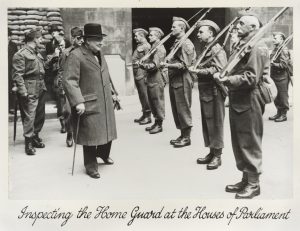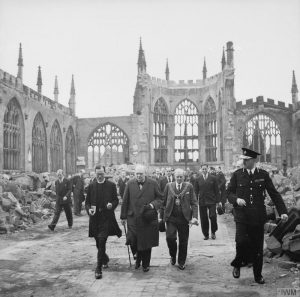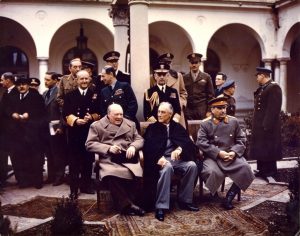
Finest Hour 181
FROM THE EDITOR – Finest Hour 181

Winston Churchill, Parliament Square, London © Sue Lowry & Magellan PR
January 1, 2019
Finest Hour 181, Summer 2018
Page 04
By David Freeman, July 2018
Winston Churchill was a professionally trained army officer. It would have been surprising if he had started out as anything else. From boyhood, he was fascinated by military history and deeply proud of his descent from one of Britain’s greatest generals, John Churchill, the first Duke of Marlborough. Identifying these traits in his son, Lord Randolph Churchill steered him in the direction of the army. The rest is history.
Major General P. A. E. Nanson, the present Commandant of The Royal Military Academy Sandhurst, begins this issue for us reflecting on the impact his institution had on Gentleman Cadet Winston Churchill. Douglas Russell then surveys Churchill’s army career in peace and war—a period that lasted nearly thirty years and was not without danger.
Churchill also had long experience with the army in an administrative capacity. As Minister of Munitions in the final years of the First World War, he had the responsibility of seeing to it that the army had the tools to finish the job. In this capacity, his working relationship with General Haig was critical to victory. Mason Watson looks at this complex story and finds a still-evolving legacy.

2025 International Churchill Conference
During the Second World War, Churchill had responsibility for all of the generals. Bradley Tolppanen examines how the Prime Minister handled key appointments at the crucial moment in the conflict. How the generals subsequently performed remains an ongoing debate. Edward Gordon and David Ramsay provide us with their evaluation of the Normandy campaign, while Fred Glueckstein focuses on the career of a seemingly unlikely soldier who fought for Britain in both world wars, Kermit Roosevelt.
Churchill’s legacy within the British Army today remains immensely strong. Alexander Perkins gives us a very personal account of following in the steps of his great-grandfather, first by attending Sandhurst and then engaging in combat in Afghanistan not far from where Churchill saw action with the Malakand Field Force. Next, Captain B. F. J. Spink provides a report on the present state of Churchill’s old regiment now known as The Queen’s Royal Hussars, “Churchill’s Own.”
The latest volume of The Churchill Documents to be published by Hillsdale College Press contains what Raymond Callahan describes as a “granular” account of Churchill’s management of the Second World War in 1944. Finally, we cannot overlook the centenary of another branch of the United Kingdom’s armed forces. Robert Courts reports on a special day in London for the Royal Air Force.
Subscribe
WANT MORE?
Get the Churchill Bulletin delivered to your inbox once a month.





